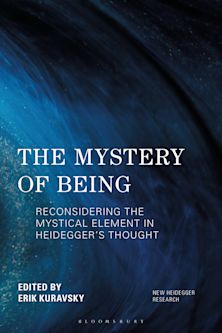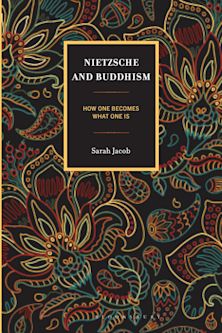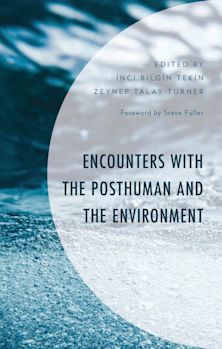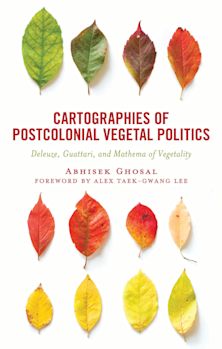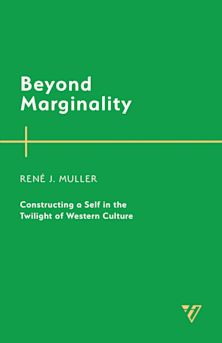- Home
- ACADEMIC
- Philosophy
- Philosophy - Other
- Peirce on Habits
Peirce on Habits
Developing a Pragmatist Ontology
Peirce on Habits
Developing a Pragmatist Ontology
This product is usually dispatched within 1 week
- Delivery and returns info
-
Free US delivery on orders $35 or over
You must sign in to add this item to your wishlist. Please sign in or create an account
Description
Peirce on Habits: Developing a Pragmatist Ontology investigates habit at its most fundamental level: as a mode of being. Through the lens developed by Charles Sanders Peirce, the American philosopher renowned for his contributions to semiotics and pragmatism, Simone Bernardi della Rosa explores how habits profoundly impact human cognition and self-conception, shaping our thoughts and behaviors. The author first analyzes the philosophical architecture of habit and its fundamental metaphysical properties, defending the thesis that habits are a mediating category between possibility and actuality characterized by generality. In the second part, Bernardi della Rosa argues that if humans are “creatures of habit,” it is because they share the same ontological and temporal characteristics as habits. By delving into pragmatist theory and contemporary accounts of habits, Peirce on Habits illustrates how habits form a pivotal element of our reality, profoundly influencing future events as well as our reasoning and selfhood. This comprehensive study offers fresh insights into the role of habit in Peirce’s philosophy and pragmatism’s relevance to ongoing philosophical discussions about habit.
Table of Contents
List of Abbreviations
Introduction
Chapter 1: The Architecture of Habits
Chapter 2: The Habit’s Mode of Being
Chapter 3: Habit’s Metaphysical Properties
Chapter 4: Some Consequences of Habit’s Capacities (on Mind and Self)
Conclusion
Bibliography
Index
About the Author
Product details
| Published | Jan 07 2025 |
|---|---|
| Format | Hardback |
| Edition | 1st |
| Extent | 236 |
| ISBN | 9781666951745 |
| Imprint | Lexington Books |
| Dimensions | 9 x 6 inches |
| Series | American Philosophy Series |
| Publisher | Bloomsbury Publishing |
About the contributors
Reviews
-
“Peirce on Habits represents an important contribution to discussions of habit in philosophy and a crucial development of Peirce studies. It will serve as an important scholarly landmark for years and decades to come.”
Mark Sinclair, Queen's University Belfast
-
In recent decades, Charles Sanders Peirce has been an important figure in diverse fields, and the notion of habit is at the center of his scientific, pragmatist, logical, psychological, and metaphysical reflections; it can be considered to be a key to the whole of his multifaceted research. Curiously, however, there is no monograph entirely focused on the notion of habit in Peirce. Simone Bernardi della Rosa explores for the first time the broad and entirely transdisciplinary territory that emerges from the author's considerations. The result is a very rich work, both in terms of its analytical capacity and its numerous references to our present time. In this sense, the book is not just a work on Peirce, but a work with Peirce, making a crucial contribution in the fields of cognitive, semiotic, and cultural studies. If we are “creatures of habits”—if we are in habits, and not habits in us—how should we interpret self and self-control? And how should we understand and transform the habitual practices that move us?
Rossella Fabbrichesi, Università degli Studi di Milano
-
“The beauty of habit-taking lies in the universality of this process, since it characterizes all life; in its individuality, since it is formed personally; and in its sociality, since mutual understanding of unique individuals is possible through it. Habit concerns permanent tension between replication and individuation. Through Charles Peirce, habit became one of the central concepts in semiotics. Organisms ("we") can be defined as creatures of habit, says Simone Bernardi della Rosa. Habit is the essence of knowledge, he continues. And our possibilities emerge from a habitual background. Peirce on Habits: Developing a Pragmatist Ontology book is a rich contribution to the semiotic analysis of habit as such.”
Kalevi Kull, University of Tartu
-
“Bernardi della Rosa’s book is a comprehensive account of the notion of habit in Peirce and guidance towards a much-needed pragmatist approach to the contemporary philosophy of habits. It accounts for our being “creatures of habits” in a fresh and precise way, philosophically and existentially.”
Giovanni Maddalena, University of Molise
-
“This historically accurate and theoretically assertive reconstruction of Peirce's thought enables us to understand the deep philosophical meaning of the saying that human beings are 'creatures of habit.' Moving comfortably between classical metaphysics and contemporary debate, the author brilliantly demonstrates the originality and current relevance of Peirce's philosophy, contributing to the rediscovery of the ontological temporal structure of habit: what makes us creatures “always waiting for further determination,” defined by the expectations we harbor toward the future and the anticipations that habit makes possible.”
Italo Testa, Università degli Studi di Parma

ONLINE RESOURCES
Bloomsbury Collections
This book is available on Bloomsbury Collections where your library has access.


















